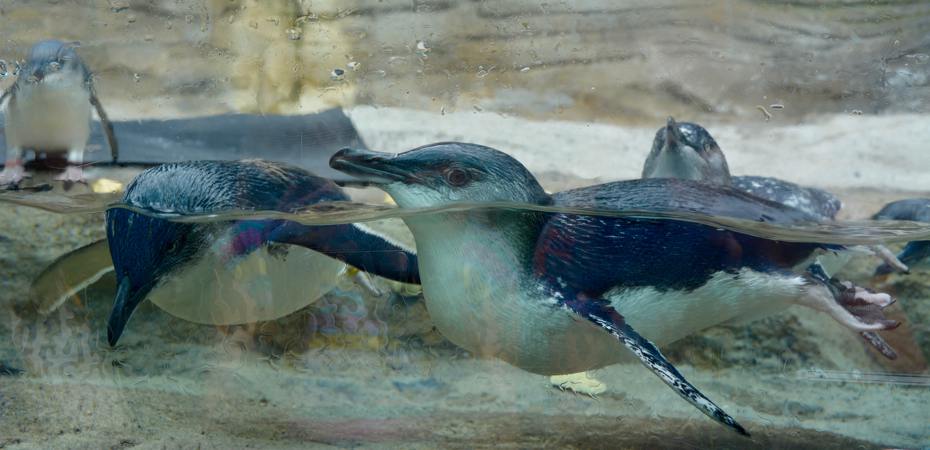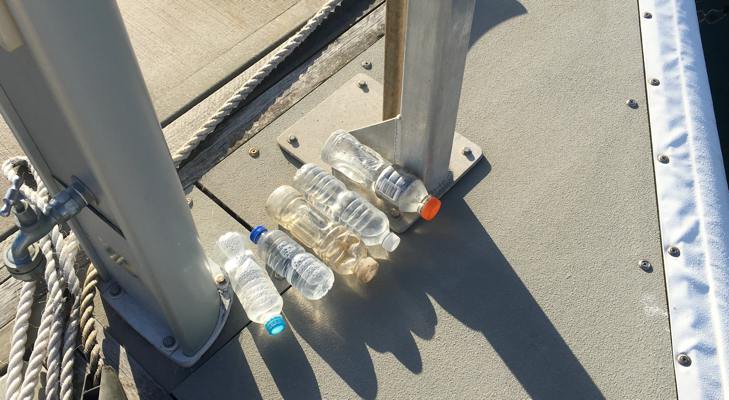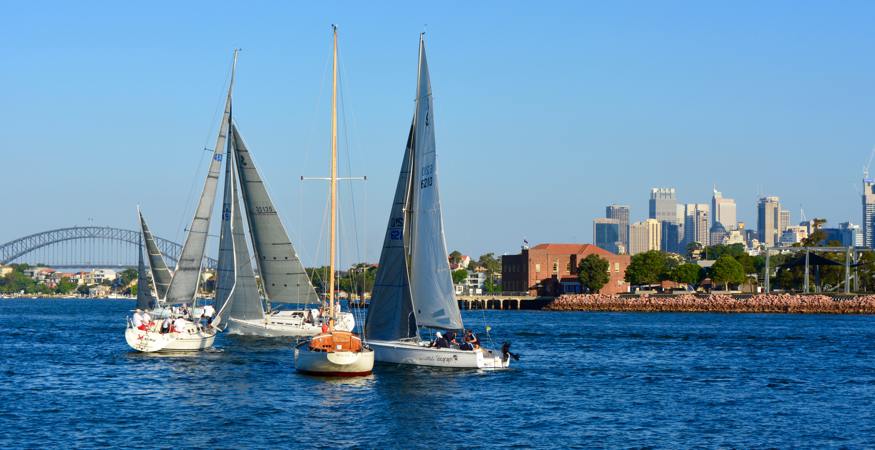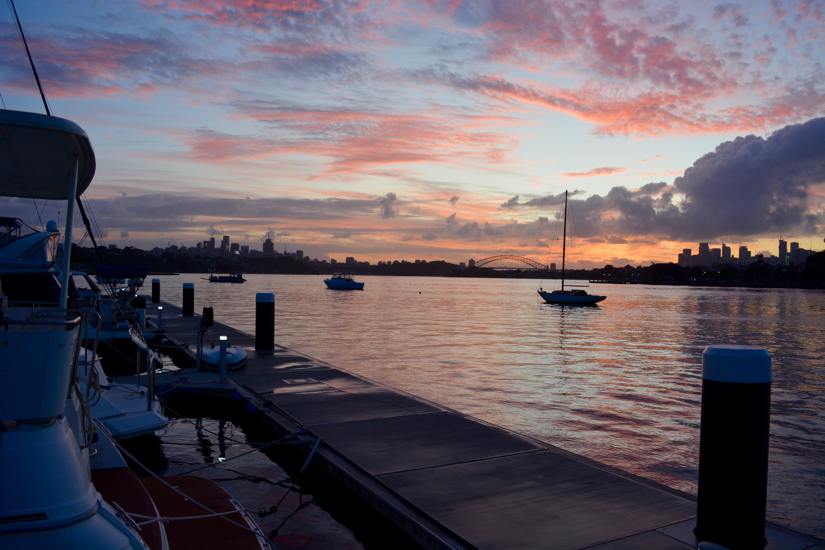"Boutique Marina", Woolwich, Sydney Harbour.

Lochmarin
Tue 16 Feb 2016 07:21
33:50.652S 151:10.141E  It was time to go in a berth. We’d not been in one since leaving New Zealand last year but I we wanted to take a trip to visit family and there were jobs to do on the boat that needed us to be on a mooring or in a berth. The bearings on the steering sheaves had worn, for example, and the starter motor had salt water damage. We didn’t want to disable the steering or the engine whilst on anchor - just in case we had bad weather and the anchor dragged. We phoned around and phoned around but moorings and berths were like hen’s teeth, in the price bracket we were looking in. We could have found a berth in a super yacht marina without much trouble, but we would have had to pay the equivalent of a mortgage to keep her there. Although there are hundreds and hundreds of boats in Sydney they are mostly local boats on permanent moorings (for which there are long waiting lists) and they are mostly smaller boats so it was very hard to find anywhere for us. Finally Phil found a berth: Woolwich Marina, minimum stay 2 months (hardly suitable for a few days visit to the the city then), quite pricey but not impossibly so. We took it. I must say, it’s a beautiful location, sitting on the Woolwich peninsula between two reserves (parks, as we’d say in England). There’s lovely walking around to historic Woolwich Docks, where “Wild Oats” was on the hard, her seemingly impossibly fragile keel on display. A dinghy ride around the headland shows lovely swanky houses with their own private slips and moorings.  I had never stayed in a “boutique” Marina before so I was intrigued and excited to find out what one was like. I imagined something rather like Pueto Calero on Lanzarote: a line of little smart shops with interesting things for sale, maybe an up market mini-market where yachties could be persuaded to pay silly money for some rather nice supplies, a restaurant or two where the patrons take selfies with the boats in the berths in the background. It wasn’t at all like that. It was a marina Jim, but not as we know it. For a start there’s no office, no place of contact, no one to pop in to ask a question to. The marina had just recently been sold to a very nice Chinese family but Greg, the previous owner, was there to take our lines (happily, as the tide runs pretty strongly through and we’ve only one engine and no bow thruster). The new owners were with him but clearly had never taken a line themselves. Idy, the daughter, a lovely young lady, takes care of bookings and billings and is quick to respond to emails but it’s still strange not to have a physical point of contact. The rest of the family are friendly and smile but seem to have very little English so no conversation is possible. There’s a great little yard with a slipway, doing a roaring trade in anti-fouling, and an expert rigger who fixed our furler properly and made up leather spreader end protectors and helped out with lending tools. Joe’s great: really friendly and welcoming, letting us know important information like where the pub is, very generous with cold beer on a hot day whilst at the same time being shockingly politically incorrect. “I hate those bloody muslims” he declared, the day we met him, and continued to express similar feelings for gays and most other minority groups during the weeks we got to know him. He kept on promising to come aboard and bring his guitar to play whilst sharing a beer but never made it over. There’s no little row of interesting shops, no cafes or restaurants, nothing to suggest a ‘boutique’ or even a ‘bijou’ label. To get to shops to buy a pint of milk we had to walk over the headland and take a ferry (one an hour) to the city centre, or take the dinghy across the bay to Birkenhead, as we did when we were in Balls Head anchorage. In terms of facilities there’s not much to write to you about. No washing machines or dryers and just one shower. Which brings me to the subject of the only onsite employee of the Marina, Charlie. Charlie lives on his boat on a mooring just off the marina. He does a super fantastic job of washing down the pontoons every morning, and sometimes evening, keeping it wonderfully clear of seagull poo. This is great as you can walk about bare foot with out having to watch your step. Charlie also does odd jobs up keeping the place: replacing a broken plank here, a bolt that’s fallen out there, and hosing out the shower room, but that’s not where his passion lies. It lies with the sea gulls. They are at war. It had occurred to me that he had a nice job, hosing down the pontoons in the morning or evening light, peacefully seeing the world wake up or go to sleep around him, it reminded me of watering the garden before going to work back in the UK. But it’s not like that for him; for him it’s a battle campaign. I have seen him stand for an hour on the corner of the pontoon spraying the seagulls in the water every time they got within range. I noticed because I was standing watching them to see the penguins, little blue fairy penguins, that were fishing amongst the sea gulls. “It’s a losing battle” I remarked to him “You can’t let them win” was his reply.  Blue fairy penguins, like those that swam around the boat in Woolwich Marina (but I took this pic at the zoo!). In the evenings Charlie’s war took another tactic: he waited around the corner until the sea gulls started to come onto the pontoon to roost then sent missiles flying down the pontoon to send them skittling off. I expect he kept score. On each corner of the marina he would stash weapons in readiness, mostly plastic drinks bottles filled with water, sometimes bits of wood. I kid you not.  Charlie’s ammo. So, having explained Charlie’s role and character a little, let me get back to the shower. After a particularly long and grubby episode in the locker below the wheel working on the steering sheaves and cables I headed to the shower to clean up. I pride myself on being a considerate shower user, generally leaving one cleaner than I found it, so I showered down the walls of the cubicle before I left, getting rid of any shampoo or soap suds, and collected any hair I’d moulted. I was a little disconcerted to find Charlie hanging around right outside the shower when I’d done, and even more so when he went in as soon as I’d vacated. He then followed me back to the boat and complained to Phil, not even to me, that there were wet footsteps from the shower to the door. Now, the only hooks for towels and clothes are on the back of the door (along with a spider. “Don’t play with the spider, we’re in Australia” Phil said to me when we first went in, as if I had any intention of doing so…) and there’s nothing there to squidgy or mop the floor with. The temperature that day was in the mid thirties and I’d left the door wide open so the place would dry out. Was I s’posed to levitate? You can tell I was cross. As was Phil. Next day Phil only said “Morning” to Charlie, no “Good Morning” or “How are you today?”. I did the same. We Brits know how to get our feelings across to these brash Australians. That’ll learn him! There were some good things about the marina, one of which was that the narrow channel between it and Cockatoo Island was a fantastic place to watch passing boats from our foredeck on a sunny afternoon. The club racing sail boats duelled as they tacked up the channel, Sydney Harbour Skiffs, with bowsprits as long as they were, charged downwind with billowing gennakers, gaggles of oppies followed their rescue boats, scattering in panic when ferries passed through hooting their fog horns, and, cutting through them all, leaving capsized dinghies behind them, came the motor boats, caring not a fig for the 6 knot no wake limit.  Duelling club racers as they tack up the channel. But that brings me to the real down side of the marina: the wash. It was terrible. There’s so much traffic that the wash is continuous. One has to leave some slack in the lines otherwise they just snap, the boat has to move a little but poor Lochmarin was bucking and rearing, lunging and jerking at her lines, like a bronco in a chute. We had to make sure she didn’t overhang the pontoon, otherwise the anchor would crash down on to it as the waves rolled through. The pontoon itself snaked up and down with the wash like a sheet that’s been flicked over a bed, rather disconcerting at first. Sometimes, when the wash happened to be perpendicular to the pontoon, the whole finger would be driven down against the piles, like a horizontal pile driver. The pile at the end would move a foot with each thump - the sound was terrifying! See for yourself: Here’s standing on the fore deck: and here’s the pontoon, with Phil at the far end: Niether were filmed on particularly bouncy days. Lochmarin was trussed up like a steer for branding, a cat’s cradle of lines doubled up every where. For the first time ever we had a line slip, twice. Some good folk we met (from Steel Sapphire) who had had their boat in the marina for 4 months told us they break a line about once a month. Below deck we couldn’t leave anything out, like being on passage. If you put a bottle on the side it jumped off onto the floor. Miserable. So, on reflection, I don’t think we’ll be going back there. Goodbye “Boutique Marina”. Thanks for the views!  |